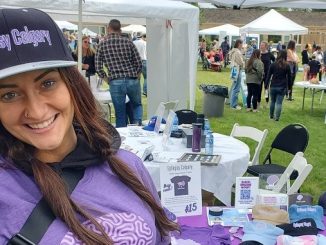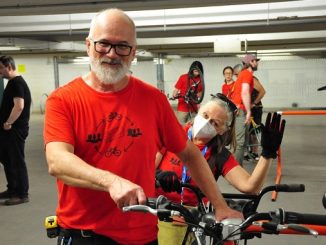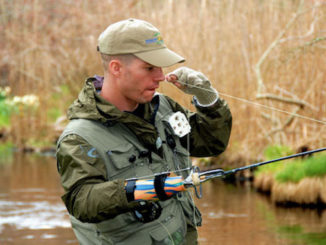Introducing Melissa Lundy, the Founder and President of Tipi of Hope Foundation, an Indigenous-led charity committed to advancing reconciliation and fostering a culture of belonging. As a Métis intergenerational Survivor, Melissa’s vision for Tipi of Hope is to bridge gaps between Indigenous and non-Indigenous communities by promoting programs that highlight Indigenous values, culture, and wellness. Through initiatives like Benches for Hope, Education for Hope, Shoes for Hope, and the Storytelling Program, the foundation ensures Indigenous voices are heard and engaged in meaningful action toward unity and understanding.
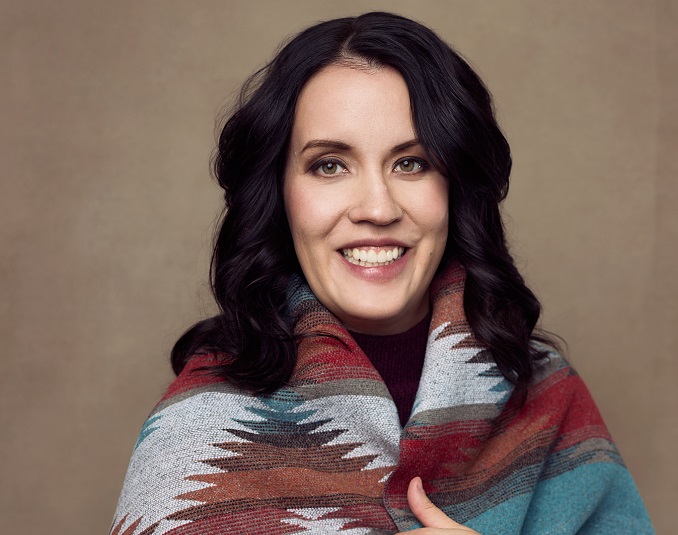
Describe your charity/non-profit/volunteer work in a few sentences.
Tipi of Hope is an Indigenous-founded and led Registered Charity that provides a path for Indigenous and non-Indigenous communities to create a joint vision of reconciliation. We work collaboratively with all peoples, communities, organizations, and groups to ensure meaningful action. We implement programs for the public on Indigenous values, culture, history, and reconciliation and advance access to culturally appropriate wellness programs for Indigenous peoples.
What problem does it aim to solve?
Two years ago, I began ideating about reconciliation programs I saw missing across Turtle Island. One key area for me was to create programs everyone could get involved in beyond the National Day for Truth and Reconciliation. Through discussions with Phyllis Chonkolay (Dene Tha First Nation Member and Survivor of Assumption (Hay Lakes) Residential School) she agreed with my interpretation. Additionally, she felt that many Survivors have never told their stories.
As an Indigenous person, I saw many gaps. Through continued dialogue with Phyllis Chonkolay, she recommended that we focus on creating a culture of belonging. In all honesty, this was a significant undertaking. I initially thought, “How could we address such a substantial concern?” and “How does one create a culture of belonging?” Areas such as creating a physical space or interconnecting communities and people all came to mind, and it was through these discussions that the idea of “interconnecting spaces” was born. These ideations created Benches for Hope, Education for Hope, Shoes for Hope and the Storytelling Program. In short, as an Indigenous-founded and led organization, we brought partners together to our table, and these programs ensure that Indigenous people continue to have their voices heard while advancing reconciliation.
When did you start/join it?
It was founded in September 2022 as a non-profit and transitioned to a Registered Charity in September 2023.
What made you want to get involved?
My “giving back DNA” was sparked when I mentored junior high students in the ESL program. In my twenties, I began volunteering at charities and non-profits to navigate challenging times in my personal life or to cope with loss. Through these opportunities, I began to sit on various Boards and realized I wanted to make a real difference. Ironically, creating a charity was also on my bucket list, and I decided it was time in 2022. As an intergenerational Survivor of residential schools, I also believe in the power of creation and healing; these are things I see missing in the space.
I am also proud to share that we are 100% volunteer-run, meaning all funds raised go directly to advancing our mission and helping those in need.
What was the situation like when you started?
When we started and continued our journey, we were always rooted in our core values of storytelling, education, respect, reconciliation, community and relationships. Although there have been hardships, staying true to these values was vital. We were also founded as the COVID pandemic was ending, which, beyond financial difficulties, was challenging to navigate.
How has it changed since?
We have built multi-year partnerships with large organizations across Canada, which has helped us create sustainable operations while advancing our programs. In the last year, we have supported three Indigenous Communities with substantial donations. In addition, 650 students and educators have participated in our Education for Hope Program and our inaugural Bench for Hope was unveiled in October 2024. More information on our recent media can be found here: News and Publications – Tipi of Hope
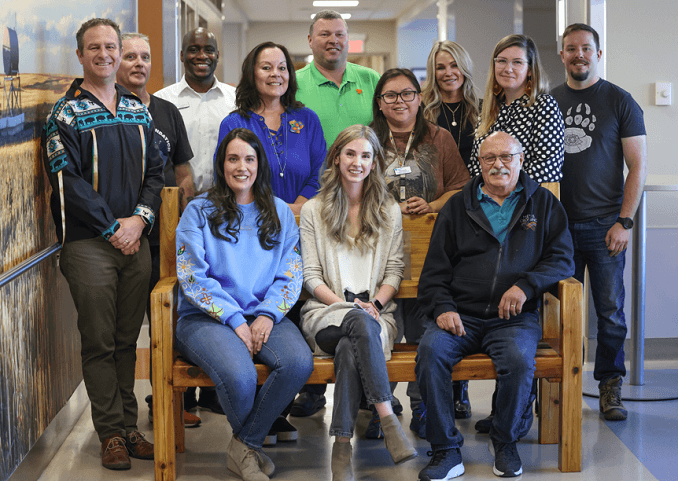
What more needs to be done?
We have the following Call to Action:
- Tipi of Hope actively seeks additional funding from individual and corporate partnerships and other resources to expand its programs and operations.
- We are also seeking:
– Indigenous carpenters to construct additional benches for our Benches for Hope Program.
– Schools who would like to participate in our Education for Hope Program.
– Shoe donations for our Shoes for Hope Program.
Our work is only possible because of people like you! As Tipi of Hope grows, our Board of Directors and Volunteers are essential.
We are currently seeking First Nations and Inuit volunteer Board Members. If you’re interested in joining a team that is creating paths to reconciliation, email info@tipiofhope.ca.
Volunteers are needed at events and initiatives. To fill out our volunteer application, email info@tipiofhope.ca.
How can our readers help?
Beyond what I mentioned in the other questions, we encourage everyone to like, share, and follow our social media to spread the word.
Consider donating to Tipi of Hope this Giving Tuesday!
Do you have any events coming up?
In December, we are gathering new pairs of shoes for our Shoes for Hope Program and are looking for donations as part of our Education for Hope – Tree of Hope holiday campaign. Those who want to get involved can email info@tipiofhope.ca
Our second bench will be unveiled in early 2025 alongside our partners. We hope this bench will go beyond health care and into additional areas where we can meaningfully advance reconciliation. If you are an Indigenous carpenter in Northern Alberta (Edmonton on above) and you would like to get involved, please email info@tipiofhope.ca.
We are also looking for additional partners for our Programs and to help advance our operations.
Where can we follow you?
Website | Facebook | Instagram | LinkedIn
PAY IT FORWARD: What is an awesome local charity that you love?
The Calgary Humane Society has a special place in my heart. Jason Zaal (my husband) and I adopted this puppy in COVID after we saw him on the news. He is now named Gunner: Someone tied a dog to a bench outside the Calgary Humane Society and fled in a truck | CBC News


